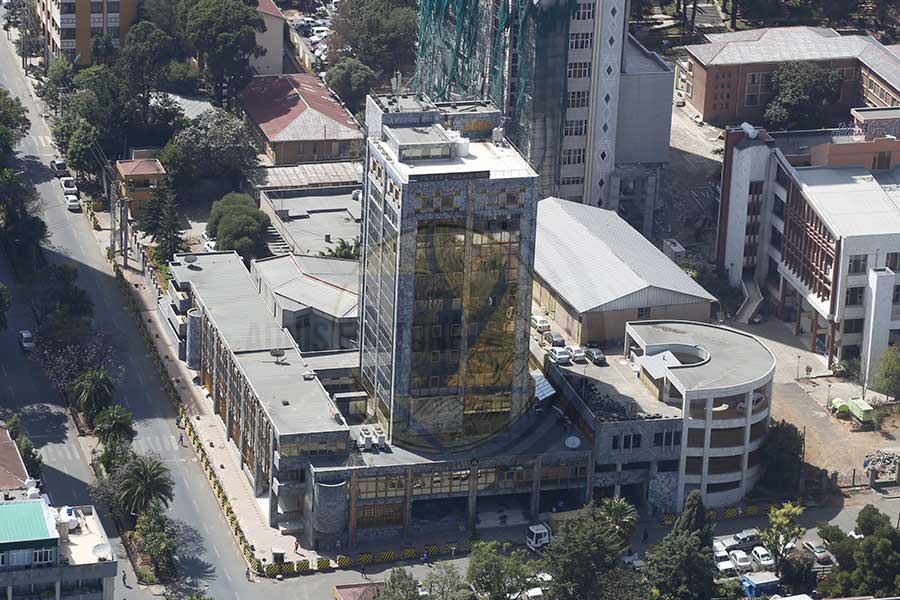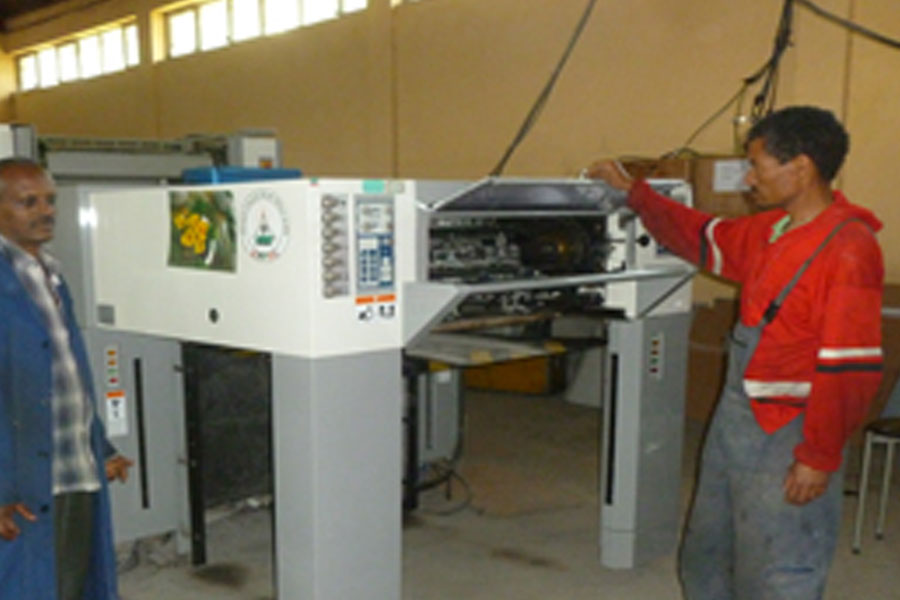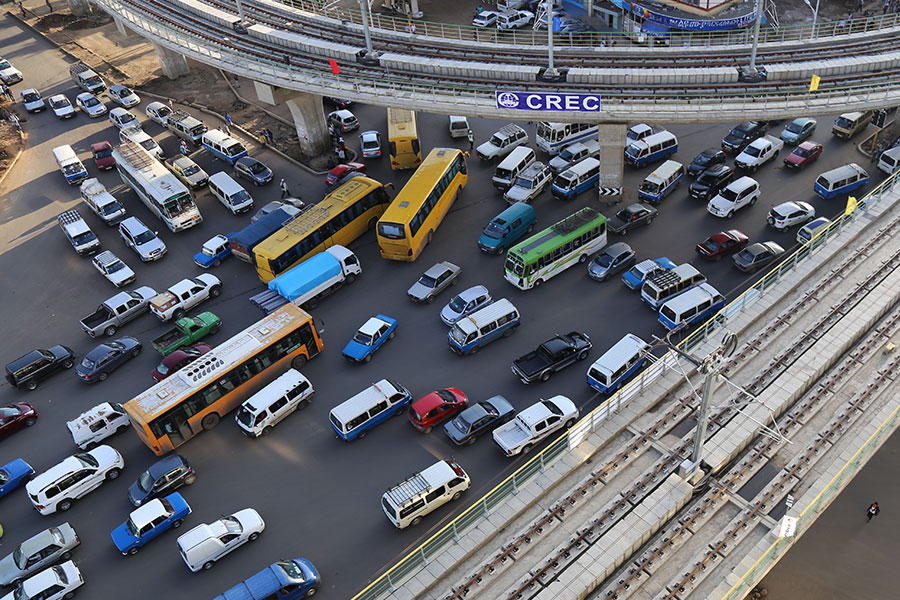
Radar | Feb 02,2019
Aug 23 , 2025
By Ahmed T. Abdulkadir
Before dawn breaks over Addis Abeba, a slow ritual unfolds where queues of shadowy figures form at taxi stops, their breath visible in the morning chill. It is a daily pilgrimage not toward opportunity, but toward a test of patience and resignation. For millions of residents in the capital of Africa’s second-most populous country, mobility has become a metaphor for governance.
To live in the political and diplomatic capital of Africa is like sitting in “motionless motion,” trapped in a system that steals time more efficiently than any pickpocket. Traffic in Addis Abeba is the physical embodiment of the state. It is costly, time-consuming and forever stuck at the red light.
Queues have become the city’s pressure valves, where frustration spills over. Hours disappear while riders bargain for seats or watch them being auctioned to the fiercest elbows. The chaos is not random. It mirrors a governance culture in which improvisation substitutes for planning.
One of the days last week, the first taxi that finally arrived was half-functional. Its seat cushions sag, its doors groan, and its aisle is crammed with more passengers than there are seats. It creeps forward until a wall of cars halts it. The driver leaned on his horn and cursed under his breath while riders swapped knowing looks. Congestion is no minor nuisance. Studies estimate the annual cost of clogged roads to be between 696.6 million and 806.3 million Br.
At peak hours, traffic crawls at barely 10Km an hour. On better days, it may inch up to 16Km.
The taxi stopped short of the promised destination, and another longer, louder and more impatient queue loomed. A woman fretted aloud about missing a hospital appointment. A young man sighed, resigned to wait. The next minibus rattled over potholes that resembled craters. Exhaust fumes seeped through the floorboards.
By the third leg of the trip, a hole in the chassis gave riders a view of the asphalt sliding past below, a literal window onto decay. Each transfer felt more precarious, mirroring the slow erosion of public services. However, commuters have little choice. Only 17pc of jobs can be reached within an hour by public transit, and a mere 15pc on foot. More than half the population walks; nearly a third depends on public transport.
Private cars account for roughly five per cent of daily trips, yet they occupy a large portion of road space, providing a snapshot of how resources are misused.
Addis Abeba registers about 630,000 vehicles, while Ethiopia overall counts between 1.2 million and 1.4 million for a country of over 100 million people. Motorisation rates rank among the world’s lowest; nonetheless, congestion ranks among the worst. Roads choke not from an overabundance of cars, but from poor road design, weak and inconsistent enforcement of traffic rules, and neglect of walkers and cyclists.
Successive city administrations have vowed to untangle the gridlock. A decade ago, the Light Rail Transit system was unveiled as a symbol of modernity. Today, only 19 of its 41 train sets run. Its annual ridership in 2024 was 13 million, which was well below its design capacity. Officials hope that repairs will enable the fleet to reach 25 trains by 2026. For many commuters, the project is a monument to siloed planning.
Surface transport tells the same story. The city-owned Anbessa City Bus Enterprise operates about 687 buses on 124 routes, carrying roughly 310,000 passengers daily, which falls short of demand. Privately run minibuses, numbering around 8,900, fill the gap across 1,265 routes. They are infamous for erratic service and driver misconduct, and city transport officials have threatened to ban them altogether.
Electrification is now the rallying cry. Transport authorities boast that more than 60pc of new vehicle sales are electric. But an electric jam is still a jam. Clean tailpipes do not clear clogged lanes.
City hall and the federal Transport Ministry champion dedicated bus lanes and larger fleets. The proposals are sensible yet risk repeating past errors if they ignore land-use patterns, housing policy and pedestrian needs. Without sidewalks, feeder roads and seamless transfers, the city may spend heavily on corridors that serve few and frustrate many more.
Congestion is no neutral inconvenience but a daily referendum on governance. Each lost hour, each futile queue, and each hazardous crossing is a verdict on the state’s priorities. The Ring Road was built to divert traffic, only for jams to migrate. Flyovers rose and bottlenecks re-formed. As in national politics, infrastructure often appears designed for show rather than for service.
Three hours had evaporated last week when commuters at last stepped out of the taxi. Peering through the hole in the floor, they were reminded of a city where promises ride above while collapse lurks below. Addis Abeba’s traffic mirrors the state itself. Grand announcements, overlooked daily realities, and citizens forced to make do with broken systems.
PUBLISHED ON
Aug 23,2025 [ VOL
26 , NO
1321]

AhmedT. Abdulkadir (ahmedteyib.abdulkadir@addisfortune.net) is the Editor-in-Chief at Addis Fortune. With a critical eye on class dynamics, public policy, and the cultural undercurrents shaping Ethiopian society.

Radar | Feb 02,2019

Fortune News | Mar 05,2022

Fortune News | Jan 05,2020

Fortune News | Feb 16,2019

Fortune News | Jul 27,2019

Fortune News | Jan 07,2023

Fortune News | Jan 05,2019

Radar | Jan 12,2019

Fineline | Mar 30,2019

Radar | May 08,2021

Photo Gallery | 177044 Views | May 06,2019

Photo Gallery | 167258 Views | Apr 26,2019

Photo Gallery | 157856 Views | Oct 06,2021

My Opinion | 136950 Views | Aug 14,2021

Dec 22 , 2024 . By TIZITA SHEWAFERAW
Charged with transforming colossal state-owned enterprises into modern and competitiv...

Aug 18 , 2024 . By AKSAH ITALO
Although predictable Yonas Zerihun's job in the ride-hailing service is not immune to...

Jul 28 , 2024 . By TIZITA SHEWAFERAW
Unhabitual, perhaps too many, Samuel Gebreyohannes, 38, used to occasionally enjoy a couple of beers at breakfast. However, he recently swit...

Jul 13 , 2024 . By AKSAH ITALO
Investors who rely on tractors, trucks, and field vehicles for commuting, transporting commodities, and f...

Oct 18 , 2025
The political establishment, notably the ruling party and its top brass, has become p...

Oct 11 , 2025
Ladislas Farago, a roving Associated Press (AP) correspondent, arrived in Ethiopia in...

Oct 4 , 2025
Eyob Tekalegn (PhD) had been in the Governor's chair for only weeks when, on Septembe...

Sep 27 , 2025
Four years into an experiment with “shock therapy” in education, the national moo...

Oct 18 , 2025 . By NAHOM AYELE
In a sweeping reform that upends nearly a decade of uniform health insurance contribu...

A bill that could transform the nutritional state sits in a limbo, even as the countr...

Oct 18 , 2025 . By SURAFEL MULUGETA
A long-planned directive to curb carbon emissions from fossil-fuel-powered vehicles h...

Oct 18 , 2025 . By BEZAWIT HULUAGER
Transaction advisors working with companies that hold over a quarter of a billion Bir...